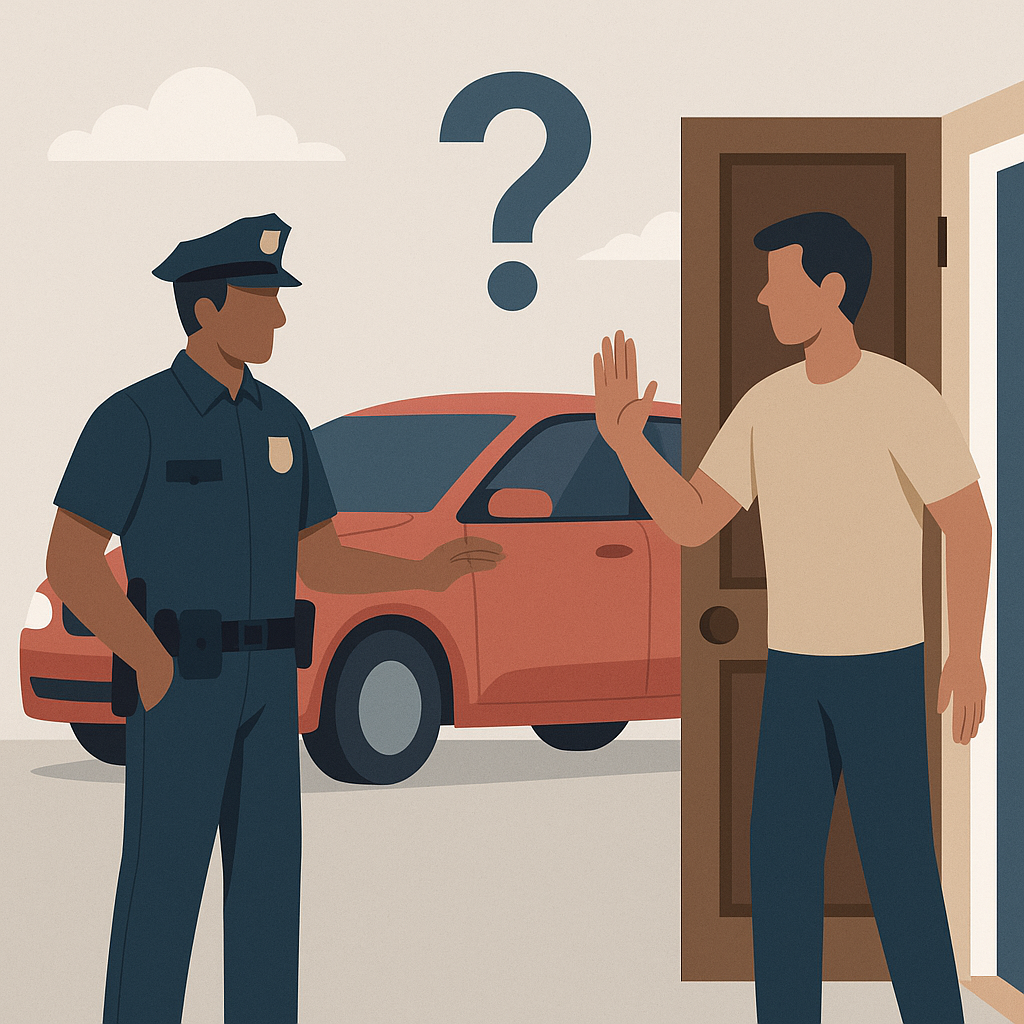Can You Refuse a Police Search in Utah?
Your rights during a traffic stop or house search
You can refuse a police search unless officers have a warrant, probable cause, or another legal exception. This guide explains when your consent matters, when police can search without it, and how to respond calmly if stopped on the road or questioned at home.
Knowing what to say and what not to do can protect your rights and avoid escalating a situation.
Quick Overview: When Can Police Search?
In most situations, police need one of three things to search you, your car, or your home in Utah: your voluntary consent, probable cause, or a judge-signed warrant. Certain limited exceptions may apply in emergencies or specific contexts.
Key phrase to remember: “No, I do not consent to any searches.” Your refusal cannot be used as evidence of guilt.
When Can Police Search Your Car?
In Utah, police can search your car only if:
- You give voluntary consent, or
- They have probable cause to believe a crime or illegal item is present, or
- The vehicle has been lawfully impounded or searched incident to an arrest.
If an officer asks, “Mind if I look in your car?” you can respond: “No, I do not consent to any searches.”
Probable Cause vs. Reasonable Suspicion
Probable cause is a facts-based reason to believe a crime occurred. Examples can include visible contraband, the smell of marijuana, or open containers in view.
Reasonable suspicion is a lower standard that allows a brief detention or frisk, not a full search. Officers need probable cause or consent to go further. If they lack it, your “no” should end the discussion.
Can Police Search Your Home Without a Warrant?
Normally, no. Utah law and the U.S. Constitution require a judge-signed warrant to enter or search a residence.
Narrow exceptions apply if you consent or if exigent circumstances exist, like an emergency, a fleeing suspect, or a threat to safety. If officers come to your door, ask to see the warrant before letting them in. You can say: “Do you have a warrant? If not, I’m not giving consent to enter.”
If You Refuse: What Happens and How To Act
Refusing a search preserves your rights. Police may still detain or question you briefly, but they cannot punish you for saying no. If they search anyway without legal grounds, do not resist physically. Instead, note details and talk to a lawyer.
- Stay calm and polite.
- Keep your hands visible.
- Ask if you are free to leave.
- Say clearly, “I do not consent to searches.”
- Avoid arguing or resisting physically.
If you believe your rights were violated: record the officer name and badge number, time and location, any witnesses, and contact an attorney as soon as possible.
Stops Outside City Limits and Unmarked Cars
Utah law allows officers to act outside their normal jurisdiction in specific circumstances, such as fresh pursuit or mutual aid. Unmarked vehicles can make lawful stops if the officer is clearly identified. Your search and seizure rights apply regardless of where you are stopped.
Quick Rights Sheet: Utah Search & Seizure Basics
You can refuse consent to any search.
Officers typically need probable cause or a warrant for most searches.
Silence is okay. You do not have to answer questions beyond basic identification.
Never lie or resist. Calmly assert your rights.
Document details if you believe your rights were violated and speak with an attorney.
Video & Social Learning Hub
Need Help Applying This To Your Situation?
Understanding your search rights can prevent costly mistakes and protect your privacy. Utah law aims to balance enforcement with fairness, but it works only if you know how to assert your rights respectfully.
Talk to a Utah AttorneyIf you believe your rights were violated, reach out to a qualified Utah criminal defense attorney for guidance. This page provides legal information, not legal advice. For more plain-English legal guidance, stay updated with Utah Law Explained, explore our mission on the About Us page, or connect with trusted counsel like Gibb Law Firm.
